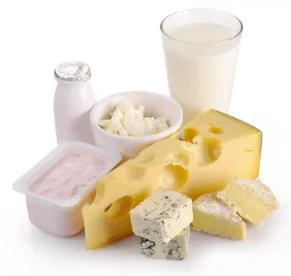The Wisconsin State Assembly Committee on Agriculture recently approved two bills that would restrict terms such as “milk,” “cheese,” and “yogurt” to products derived from lactating hooved animals, regardless of whether the terms are qualified by phrases like “plant-based,” “vegan,” or “dairy free.” Assembly Bill (AB) 73 covers the labeling of dairy foods, and AB 74 discusses the labeling of milk products. Both passed the Assembly by executive action on April 7.
Both bills include a provision that states that “the prohibition in the bill applies only if at least 10 states out of a group of 15 states listed in the bill enact a prohibition similar to this bill by June 30, 2013.” In other words, the prohibition against use of such terms does not take effect unless at least 10 other named states enact a similar prohibition. The group of states is composed of Illinois, Indiana, Iowa, Kentucky, Maryland, Michigan, Minnesota, Missouri, North Dakota, North Carolina, Ohio, South Dakota, Tennessee, Virginia, and West Virginia.
The committee also passed a third bill, AB 75, that prohibits the labeling of a meat product as “meat” or a similar term unless the product is derived from an edible part of the flesh of an animal or any part of an insect, and does not include cultured animal tissue that is produced from animal cell cultures. In short, the bill prohibits cell-cultured meat from being labeled as “meat.”
The bills’ sponsors allege that they drafted the bills because consumers are confused by plant-based milk, cheese, and meat labels. However, in a statement to FoodNavigator-USA, Michael Robbins of the Plant Based Foods Association (PBFA) argued that the bills are “anti-competitive, anti-free market” and “present a misguided attack on innovation and all food producers’ free speech rights to use words and phrases that consumers understand.”



 />i
/>i

